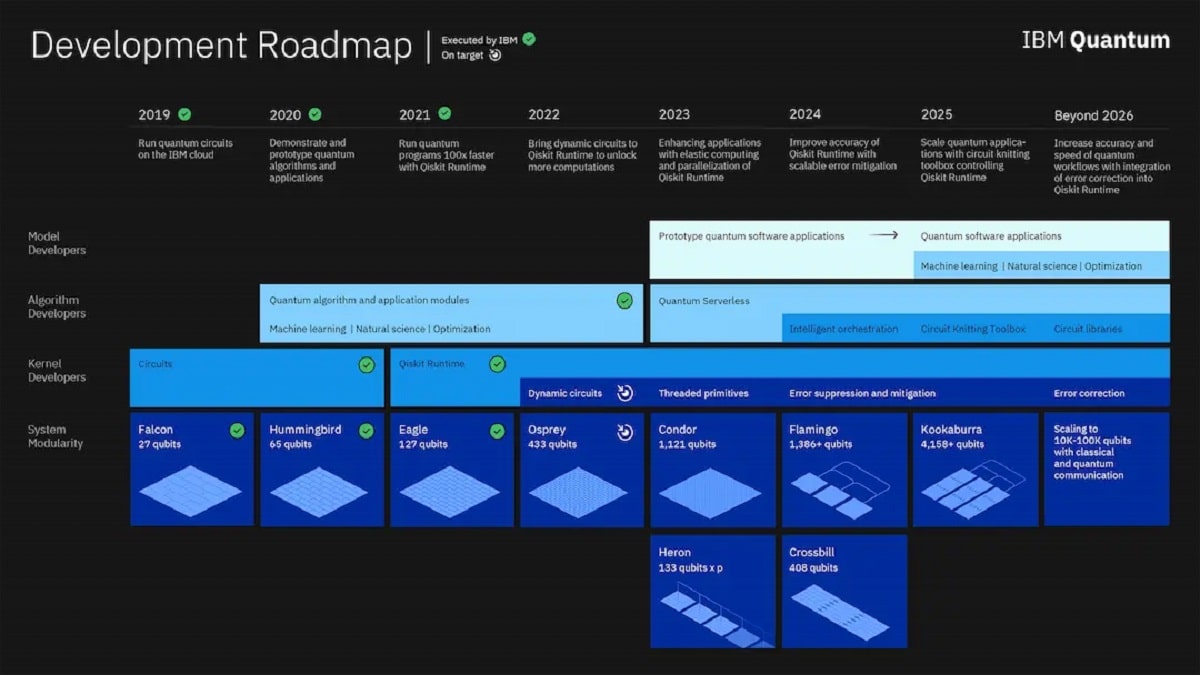
IBM announced that it plans to expand its quantum ambitions and revised the roadmap with an even more ambitious goal, “operate a 4000-qubit system by 2025”. Building a device that actually captures the behavior of atoms and can exploit those behaviors to solve some of the toughest problems of our time may seem impossible if you limit your thinking to the familiar computing world.
Within days of the sale of the Watson Health unit, IBM announced that a new model of its Z-series mainframes would arrive "by the end of the first half" of 2022, noting that the team's debut would be a source of increased revenue for the company. company's infrastructure business.
The news was the subject of debate in the industry, as Big Blue seemed to be "moving away" from those "big old systems" to focus on more lucrative businesses like hybrid cloud and artificial intelligence (AI). However, the company assured investors that "some" customers are still interested.
According to IBM, the mainframe market still exists and provides the company with a welcome boost in revenue. To do this, it is preparing a new cycle of mainframe computers for the end of the first half of the year.
The announcement was made Monday during Big Blue's fourth-quarter 2021 earnings conference call. During the call, CFO James Kavanaugh suggested the new release will have a positive impact on IBM's revenue, which was $16,700 billion in the quarter and $57,000 billion to $35,000 billion for the year.
Forty years after starting to dabble in quantum computing, IBM is ready to take the technology out of the lab and into more practical applications like the supercomputer! The company has already passed a number of development milestones since it released its previous quantum roadmap in 2020, including the 127-qubit Eagle processor using quantum circuitry and the Qiskit runtime API.
To do this, IBM plans to first get multiple processor sets to communicate with each other in parallel and serially. This should lead to the development of better error mitigation schemes and better coordination between processors, two necessary elements for tomorrow's practical quantum computers.
In addition to that, IBM to design and implement chip-level couplers, which will "tightly connect multiple chips together to effectively form a single larger processor," according to the company, and then build quantum communication links to connect these larger multiprocessors, even in larger clusters: essentially chaining ever-larger groups together. of processors until they form a functional, modular 4000-qubit computing platform.
As such, IBM released a set of ready-to-use program primitives earlier this year, "pre-built programs that allow developers to easily access the results of quantum calculations without requiring a complex understanding of hardware," according to the society. IBM intends to expand this suite of programs in 2023, allowing developers to run them on parallelized quantum processors.
These workflows will take a given problem, break it up into smaller quantum and classical programs, process these processes in parallel or serially, whichever is most efficient, and then use an orchestration layer to "tie" all these different workflows together. data into a coherent result that conventional computers will be able to understand. IBM is calling its proprietary assembly infrastructure Quantum Serverless, and according to the new roadmap, it will implement the feature in its core quantum software stack in 2023.
By 2025, we believe model developers will be able to explore quantum applications in machine learning, optimization, finance, the natural sciences, and more. "For many years, CPU-centric supercomputers have been the enterprise processing workhorse, with IBM a key developer of these systems," he continued.
In recent years, we have seen the rise of AI-centric supercomputers, where CPUs and GPUs work together in giant systems to tackle heavy AI workloads.
Source: https://research.ibm.com